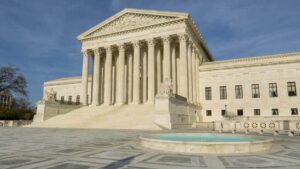As of 2024, sports betting is not legal in Texas despite efforts to change this. There have, however, been many efforts to legalize sports betting in the Lone Star State. It is also no secret that several billionaires see this changing in the future. In this article, we will explore the current state of sports betting in Texas and, perhaps more importantly, when sports betting might become legal in Texas.
Is sports betting legal in Texas?
Sports betting is illegal in Texas, and efforts to legalize it have faced significant challenges. Despite the federal ban on sports betting being lifted, allowing states to decide on their legalization, Texas has not successfully legalized sports betting.
Is it legal for someone in Texas to place a bet in another state?
A Texas resident can travel to a state where it is legal to place a bet, such as Nevada and place a bet while they are there. It is not legal for someone who is physically in Texas to place a sports bet in another state. Does that mean bets aren’t placed by Texans every day?
Are sports betting apps legal in Texas?
Sports betting apps are not legal in Texas. Apps like Bovada try to skirt this by operating outside the United States. Yet, for users in Texas, Penal Code Section 47.02 still applies. This prohibits bets on the partial or final result of a game or contest or on the performance of a participant in a game or contest. In other words, there is some risk that a person could be prosecuted for using an app to place bets online from Texas. With that said, in 15 years as a criminal lawyer in Texas, I have never seen a gambling prosecution based on a sports betting app. Other apps like Fliff try to skirt Texas law by offering “Fliff Coins” and “Fliff Cash” instead of dollars and cents directly as winnings. However, the Texas gambling law covers anything of value, so this would not be a successful defense.
What is the punishment for placing a sports bet in Texas?
The only silver lining is that gambling is a Class C misdemeanor in Texas, meaning it is not punishable by jail time. It is, instead, punishable by a maximum fine of $500. This also means that these types of offenses would be prosecuted by cities and generally not district attorneys or at the county level. Most cities don’t have the resources to prosecute these cases.
What efforts have been made to legalize sports betting in Texas?
In 2023, Texas saw legislative efforts aimed at legalizing sports betting. The Texas House of Representatives has shown some support for sports betting legislation, with bills such as HB 1942, which would legalize mobile sports betting, and HJR 102, which would establish brick-and-mortar casinos.
HJR 102 (2023)
House Joint Resolution 102 (HJR 102) was a legislative proposal in Texas aiming to create a constitutional amendment to legalize wagering on certain sporting events within the state. The resolution also stipulated that at least 98 percent of the net state tax revenue generated from sports wagering should be dedicated to property tax relief. The Texas House of Representatives passed HJR 102 on May 11, 2023, after it received enough votes following a third reading. Specifically, it needed a two-thirds majority, or 100 votes, to pass because it proposed amending the state constitution. It successfully garnered 101 votes out of a possible 143 during the vote. Despite the resolution passing in the House, Lt. Governor Dan Patrick’s opposition to the legislation was a critical factor in its demise in the Senate. Patrick, who presides over the Texas Senate, had indicated on multiple occasions that there was little to no support for expanding gambling, including sports betting, among Senate Republicans. Patrick had previously signaled that it might be “game over” for efforts to legalize sports betting and casino gambling in the state, citing “zero support” for such legislative proposals in the Senate. He had also made it clear that he would not bring the bill to the floor unless it had significant Republican backing, requiring consensus from at least 15 to 16 Republican senators.
HB 1942 (2023)
House Bill 1942, aimed at legalizing mobile sports betting in Texas, saw significant legislative activity but ultimately did not become law. The bill proposed to grant mobile gaming licenses to Texas’s 14 professional sports teams, which would then partner with mobile gaming operators to provide sports betting within the state. Despite gaining some momentum, including approval from the Texas House of Representatives and moving through the House Committee on State Affairs with a 9-3 vote, HB 1942 faced substantial obstacles. One of the major hurdles for HB 1942 was the opposition from key political figures, notably Texas Lieutenant Governor Dan Patrick. Despite the bill’s progress in the House, Patrick shut down any optimism for legal sports betting in 2023 by stating he would not call HB 1942 to the Senate floor for consideration.
I’ve said repeatedly there is little to no support for expanding gaming from Senate GOP. I polled members this week. Nothing changed. The senate must focus on issues voters expect us to pass. We don’t waste time on bills without overwhelming GOP support. HB1942 won’t be referred.…
— Office of the Lieutenant Governor Dan Patrick (@LtGovTX) May 13, 2023
However, these bills have not progressed in the Senate, and Governor Dan Patrick has been a notable obstacle to their advancement
When could it sports betting be legalized in Texas?
The Texas legislature meets biennially, which means that any new legislation would not be considered until the next legislative session in 2025.
Is it likely that sports betting will be legalized in 2025?
Dan Patrick will still be Lieutenant Governor in Texas in 2025. He was re-elected for a third term in November 2022. Patrick has announced his intention to seek re-election for a fourth term in 2026. If he wins and serves the full four-year term, he would be in office until at least January 2031. This would give him a total of 16 years in office, making him the second-most-tenured lieutenant governor in state history, behind former Lt. Gov. Bill Hobby, who served for 18 years from 1973 to 1991. If Lt. Patrick remains in office, barring an overwhelming push from Republican senators, it is unlikely that sports betting will become legal in Texas.
What efforts are underway to legalize sports betting in Texas?
Despite the challenges, there is some momentum and interest in legalizing sports betting in Texas. The state’s professional sports teams and owners, such as Jerry Jones of the Dallas Cowboys and Mark Cuban, who recently sold a majority stake in the Dallas Mavericks to Miriam Adelson of the Las Vegas Sands Corporation, have supported legalization.
Miriam Adelson: As the largest shareholder of Las Vegas Sands Corp. and a Republican megadonor, Miriam Adelson has been leading a push for gambling in Texas. Her family’s political action committee has contributed millions to Texas campaigns to support gambling legislation. Additionally, Las Vegas Sands Corp. has purchased around 100 acres of land near the old Texas Stadium site in Irving, which is speculated to be a potential site for a new Mavericks arena and casino resort.
Mark Cuban: The now minority owner of the Dallas Mavericks, Cuban has been a vocal proponent of sports betting and has expressed his desire to build a new arena for the Mavericks that includes a casino resort. Cuban’s partnership with the Adelson family, who purchased a majority stake in the Mavericks, is seen as a strategic move to influence gambling policy in Texas. Mark Cuban’s ownership of the town of Mustang, Texas, could potentially be advantageous if gambling is legalized in the state. Owning an entire town would give Cuban a significant amount of control over land use and development, which could be beneficial for establishing new business ventures, such as a casino, should the legal landscape change to permit such establishments.
Tilman Fertitta: Owner of the Golden Nugget casinos and the Houston Rockets, Fertitta has expressed interest in bringing resort-style casinos to Texas and has also been involved in efforts to change the state’s gambling laws.
Gambling and the Texas Constitution
The provision of the Texas Constitution that prevents gambling, including sports betting, is found in Article III, Section 47. This section is often referred to as the “anti-gambling” provision. It prohibits lotteries and gift enterprises, effectively banning most forms of gambling. The relevant part of the Texas Constitution states: “Lotteries and gift enterprises; bingo games. (a) The Legislature shall pass laws prohibiting lotteries and gift enterprises. Provisions enacted to authorize the conduct of state lotteries shall be implemented to prevent commercialized gambling, ensure the integrity of the games, and maximize the contribution of the lottery proceeds to the state in lieu of tax increases.”This constitutional provision requires any expansion of gambling, including sports betting, to be approved through a constitutional amendment process. This process involves a proposal by the Texas Legislature, which must be approved by a two-thirds majority vote in both the House and the Senate, followed by a majority vote in a statewide referendum




